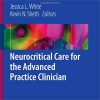Respiratory Drive in Sepsis and Septic Shock Patients: Modulation by High-flow Nasal Cannula
pubs.asahq.orgPatients with sepsis and septic shock of extrapulmonary origin present elevated respiratory drive and effort, which can be effectively reduced by high-flow nasal cannula.
25 nonintubated patients with extrapulmonary sepsis or septic shock were enrolled.
13 patients (52%) were in septic shock.
The Sequential Organ Failure Assessment score was 5 [4 to 9].
During low-flow oxygen at baseline, respiratory drive and effort were elevated and significantly correlated with arterial lactate and inversely with dynamic lung compliance.
Noninvasive support by high-flow nasal cannula induced a significant decrease of respiratory drive and effort.
Oxygenation and arterial carbon dioxide levels remained stable during all study phases.

















